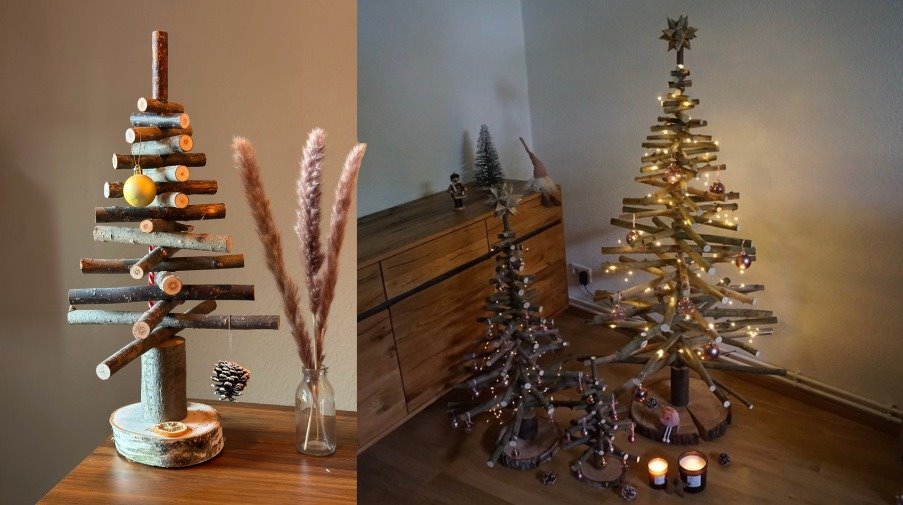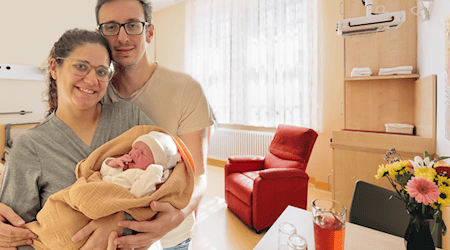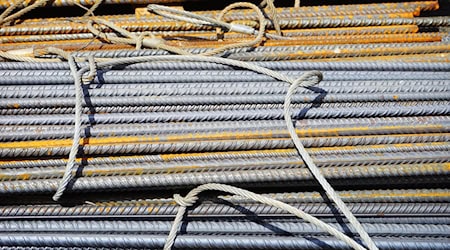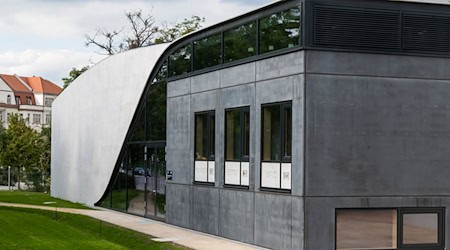Traditionally, real Christmas trees are a central element of the festive season. However, increasing awareness of environmental issues and the tangible consequences of climate change are leading to a rethink. More and more people are looking for ways to make their lives more sustainable and environmentally friendly without having to go back to the Stone Age.
The Dresden-based start-up "Dresdener Holzbengel" shows that even very traditional areas of life will probably not be spared from these far-reaching changes in the future. They have declared war on the waste associated with the traditional (coniferous) Christmas tree and developed a real alternative: the wooden Christmas tree.
Instead of cutting down a living tree and then watching it dry out, the wooden Christmas tree does away with the need to cut down trees for festive decorations. All the wood used comes from sustainable forestry around Dresden. The tree slices, for example, are taken from trees that are felled due to land consolidation or forest maintenance. "Every time one of our partners cuts down a tree that meets our requirements, they call us. No extra trees are felled. This not only eliminates the need for long transportation routes, but in future it could also mean that the huge monocultures that grow the 31 million firs and spruces that are consumed every year in Germany alone can be dispensed with," says Managing Director Martin Erler.
"Sure - a Christmas tree has needles - what else?"
I'm sure many people think this or something similar. But when you look at the trees, you start to get an idea of what sustainability can look like. It's not so much the renunciation that plays a role, but rather the willingness to let go of the familiar and the accustomed. So I ask myself the question: are there perhaps even crystal-clear advantages to a wooden Christmas tree?
As Martin Erler says: "The main advantage is certainly its reusability. The classic fir tree grows for around 10 years, only to dry out within a few weeks for our Christmas custom. This is not only an extremely poor cost-benefit ratio, but also a huge waste of valuable agricultural land. In addition, there are other advantages due to the absence of needles, such as the significantly reduced risk of fire, ease of care and cleanliness. Our trees are also much more suitable for allergy sufferers and cat lovers, as our wood is pesticide-free and is not treated."
I have to admit that I have never really thought about many of these points. But maybe I should? The fact is that the annual disposal chaos on our sidewalks and streets would be history once and for all with the wooden Christmas trees. Because for the rest of the year, you simply stow them away in the cupboard or attic. This not only saves you the hassle of disposing of them every Christmas, but also the hassle of procuring them. For commercial users in particular, where Christmas decorations are an essential part of the business, this has great potential.
One of the first hotels to consistently focus on sustainability with wooden Christmas trees is the Townhouse Dresden. Mathias Weise (General Manager) of Townhouse Dresden explains: "We buy regionally. We buy sustainably. We don't have anything that is wrapped up again. [...] Buying a tree every year that is chopped down in some forest is not sustainable for me. [...] I can still use the trees from Holzbengel many years from now. That's what real sustainability looks like. The fact that we no longer have to sweep up needles is an added bonus."










